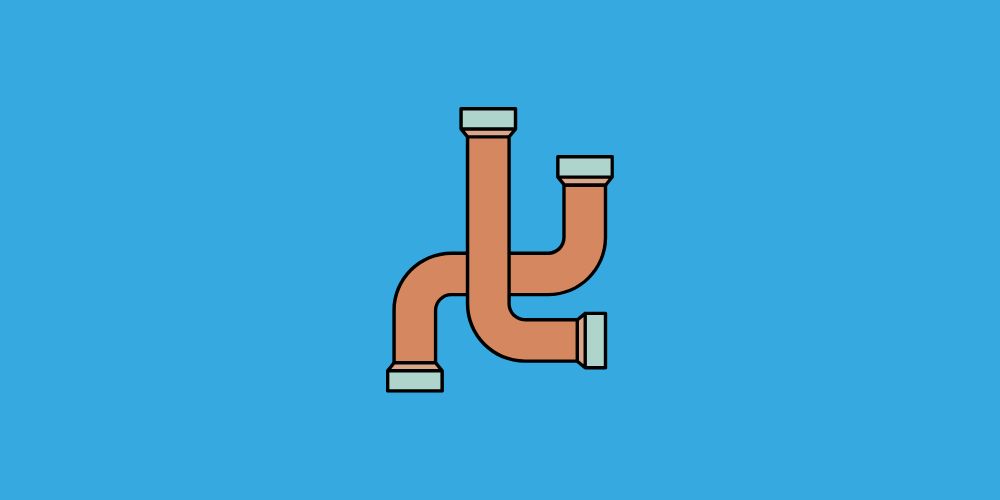You might not give much thought to the pipes that bring clean water into your home or business, but did you know that those pipes are most likely made of copper? Out of all the metals that could be used for piping, why is copper the material of choice?

Copper is a versatile metal with many uses. It’s an excellent conductor of electricity, which is why it’s used in electrical wiring. It’s also tough and durable, making it ideal for plumbing applications. In fact, copper has been used in plumbing for thousands of years.
Here are just a few reasons why this natural material is still the best choice for water pipes today.
Copper is Non-Toxic
When it comes to contact with drinking water, safety is paramount. That’s why copper piping is an excellent choice for water lines.
Copper is a naturally occurring element that is found in small traces in almost all water sources. Because it’s not man-made, there’s no risk of contamination from industrial pollutants. Additionally, copper pipes won’t introduce any harmful chemicals or toxins into your water supply.
Copper is Durable
Copper piping can last for decades with proper installation and maintenance. In fact, properly installed copper pipes have an expected lifespan of 50 years or more! This longevity is due to copper’s resistance to both corrosion and degradation.
Copper also does not get affected by common household cleaning products or harsh chemicals. With proper care, your copper pipes will continue to function perfectly for many years to come.
Copper is Easy to Install and Repair
Copper piping is relatively easy to install, especially when compared to other materials like PVC or stainless steel. And if a pipe does spring a leak, it’s much easier (and less expensive) to repair a copper pipe than it is to repair one made of another material. That’s because copper pipes can be soldered easily without the need for expensive welding equipment or specialized training.
Copper Pipes are Versatile
Copper pipes can be used for both hot and cold water lines as well as gas lines. Additionally, they can be used indoors or outdoors without fear of damage from the weather or sunlight exposure.
Copper Pipes are Attractive
Copper pipes have a natural patina that only gets better with age. That means they won’t need to be replaced as often as other materials like plastic or stainless steel, which can become stained or discolored over time.
Copper Pipes Don’t Corrode
One of the most important properties of copper pipes is that they don’t corrode. This is particularly important when it comes to drinking water because you don’t want any contaminants leaching into your water supply.
While other materials like iron can corrode over time, copper remains stable in both hot and cold water. Copper is also resistant to salts, acids, and alkalis, meaning it won’t break down even if your water is particularly hard.
Copper Pipes Discourage Bacterial Growth
Another key reason copper is such a great choice for drinking water pipes is that it discourages bacterial growth. This is thanks to a property known as “biostaticness.” This means that bacteria are unable to attach themselves to copper surfaces and multiply.
Studies have also shown that copper is effective at inhibiting the growth of E. coli and other harmful bacteria.
Copper is Lead-Free
Lead is a harmful metal that was commonly used in plumbing before it was banned in 1986. While lead-free options like copper have been available for many years, some old homes and businesses still have lead pipes in place. If you’re concerned about lead contamination in your water, switching to copper pipes is a great way to mitigate that risk.
Does copper help keep water clean?
Copper is known to help keep water clean because it kills algae, bacteria, fungi, and weeds. Although it is effective against these contaminants, it is not infallible, and care should be taken to ensure that water remains safe while using copper pipes.
Some possible methods of ensuring the safety of your water supply include using UV filters, installing water softeners, or testing the pH levels of your water regularly.
Ultimately, it is important to consult with a professional when making any decisions about the safety of your water supply.
Final Thoughts
There are many good reasons why copper piping continues to be the material of choice for plumbing applications, including its durability, ease of installation and repair, versatility, attractiveness, and ability to discourage bacterial growth.
If you are looking for a reliable material that will help keep your water clean and safe to drink, copper is definitely the right choice. However, it is important to take steps to ensure that your water supply remains safe at all times. This may include using UV filters, installing water softeners, and regularly testing the pH levels of your water.
Regardless of what material you choose for your plumbing system, it is always important to work with a qualified professional to ensure that everything is installed properly and safely.

